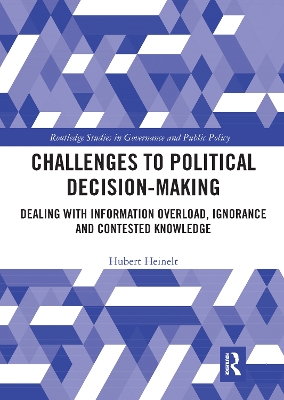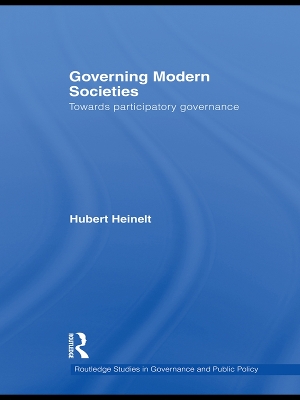Routledge Studies in Governance and Public Policy
3 total works
This book analyses the ability of individuals to create meaning through communicative interaction and of what seems to constrain and enable actors in taking collectively binding political decisions.
The book examines why, in some contexts, individuals consider something as evident and relevant for their action while others perceive them as nonsense or simply as ‘fake news’. As such, the book follows a research perspective based on a concept emphasizing that the core function of knowledge is related to the selection and integration of data and other information which give them substance. Taking an interpretive political science perspective to knowledge, the book overcomes particular deficiencies of policy learning concepts where the development of an understanding of ‘reality’ is thematized in a way that supposedly decrypts everyday processes through which individuals understand ‘reality’ and (re)orient their actions to intersubjective processes. To better understand these intersubjective processes, communicative mechanisms are worked through where knowledge claims are selected and integrated.
This book will be of key interest to scholars and students of political science and policy analysis and more broadly, to sociology and social theory, geography, planning, philosophy, communication studies, and governance studies.
Is the 'golden age' of democracy really over due to the pressures of globalisation and the erosion of the nation state?
Within this book, Heinelt seeks to address the democratic deficit in political systems linked to limited Citizen Participation reflecting on the notion of democracy and participatory governance and how they relate to each other. Exploring democracy beyond the governmental structures and focusing on participatory governance in particular this book demonstrates that common notions of democracy have to be re-conceptualised without neglecting its key ideas. By arguing that it is a political task to turn the inevitability of governance into a participatory form, Heinelt develops a model of different 'worlds of democratic actions' which shows that democratic political systems have to be considered as a complex and broad web of various forms of interest articulation and intermediation as well as decision-making.
Making an important contribution to the 'third transformation of democracy', this book will be of interest to students and scholars of governance, democracy, policymaking & European studies.


